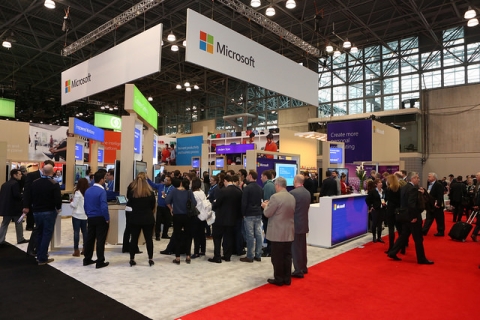Beacons Provide Opportunities for Enhanced Attendee Experience

By Elizabeth Johnson
What if you had a tool that helped attendees navigate the showfloor so they can find exhibitors more easily; one that helped attendees connect with each other in more meaningful ways; and one that improves feedback on things such as session surveys? Sound good? Using technology, it doesn’t have to be a ‘what-if’.
Beacons - pieces of hardware that use battery friendly, low-energy Bluetooth signals to transmit messages to a smartphone or tablet - are revolutionizing attendee experiences.
Several show organizers have deployed beacons at their events and are measuring the results. At the 2016 NRF (National Retail Federation) BIG Show, Jason Hoolsema, vice president of IT at NRF, spearheaded the effort to test this technology and deployed 1,000 beacons around New York’s Jacob J. Javits Center.
NRF’s goal was to provide attendees with an enhanced and customized experience. It chose beacons because the retail industry it serves uses the technology within stores to enhance customers’ experiences in different ways.
The beacons - a combination of small (quarter-size) with a range of 25 feet and large (hockey puck size) with a range of 130 feet - were placed throughout the hall and linked to the show’s mobile app. Small beacons were used for navigation and traffic analytics. Large beacons were used to message attendees in with relevant details and calls to action.
Additionally, attendees could “find me” using the app to identify their locations within the event and map the easiest route to the desired destination—from exhibitor booth to education session room.
And finally, those pesky surveys attendees rarely complete, but provide invaluable feedback to the organizer?
The beacons that were placed in the session rooms delivered messages that urged users to complete session feedback. “Our survey responses increased 178% by using beacons to message attendees to complete the survey for the exact sessions they attended and link directly to the survey,” Hoolsema said.
While the possibilities with beacons are great, there are a few challenges organizers looking to implement them should be aware of:
· There will be a certain level of signal degradation based on the number of people within the event space that is almost impossible to estimate ahead of time.
· Not all attendees’ phones will support beacons (even newer models of some brands).
· Not all attendees will have Bluetooth enabled on their devices
· Partner with an app developer that understands how to program with beacons—NRF used Eventbase which has worked with SAP, MS Users Conference and others—but there are several.
· Allow a year to plan for beacon implementation with the messaging process starting about six months out—programming takes the most time and attention.
· Keep a good log of beacons placement and label each of them with your contact information just in case someone leaves with one by mistake.
· The amount of data collected can be overwhelming so it is important to be clear on what you want to measure at the start of the process.
· Success of the beacons relies on the number of app downloads
Beyond enhancing attendees’ experiences, beacons can be used to collect data that is valuable to the show organizer.
“Through ‘heat mapping’ we could track traffic patterns, identify common areas with the show space and measure the flow of people to see where they would go first,” explained Hoolsema. “That way we do a year over year comparison and make adjustments in placement of booths or concession stands for future shows.”
The financial commitment involved includes purchasing the beacons, programming, human resources for deployment and analytics. After the initial program, costs decrease because the beacons would be reused.
“This effort was largely successful and we would definitely do it again,” Hoolsema said.


Add new comment